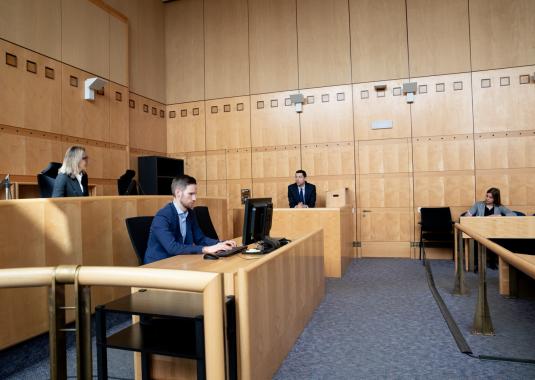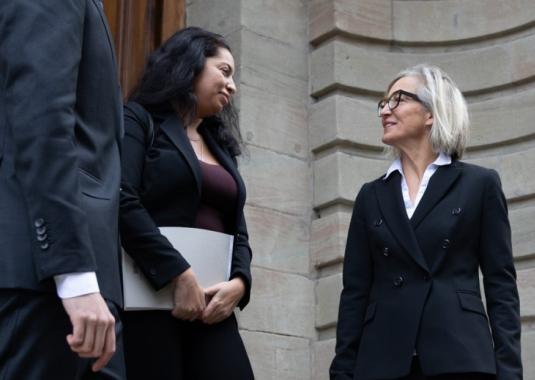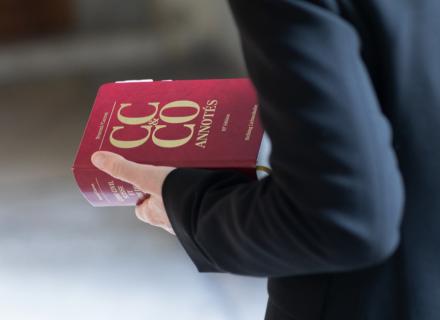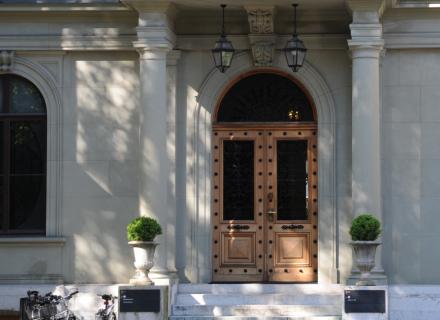Contacts
Address
Contact details
Desk
Opening hours
9h-12h / 13h30-16h00
Telephone
Opening hours
8h-12h / 13h30-16h30
Tribunal de première instance
Tribunal des baux et loyers
Commission de conciliation en matière de baux et loyers
Filing applications of ex-parte interim measures and seizures to the Tribunal de première instance
Urgent requests must be submitted no later than the closure of the desk at 4:00 pm.
In the event of filing with the greffe universel of the Judiciary power, urgent applications will generally be processed in the 24 hours following payment of the fee and therefore, in principle, the following day, particularly for documents filed in the afternoon.
Mailing address
Tribunal civil
Case postale 3736
1211 Genève 3
Tribunal de première instance
Case postale 3736
1211 Genève 3
Tribunal des baux et loyers
Case postale 3120
1211 Genève 3
Commission de conciliation en matière de baux et loyers
Case postale 3120
1211 Genève 3
Presidency and Directorate
-
Mr. Pierre-Yves MAURON
President
-

Mr. Guillaume MEIER
Director
Organization
The Tribunal civil is composed of the Tribunal de première instance, the Tribunal des baux et loyers and the Commission de conciliation en matière de baux et loyers.
Tribunal de première instance
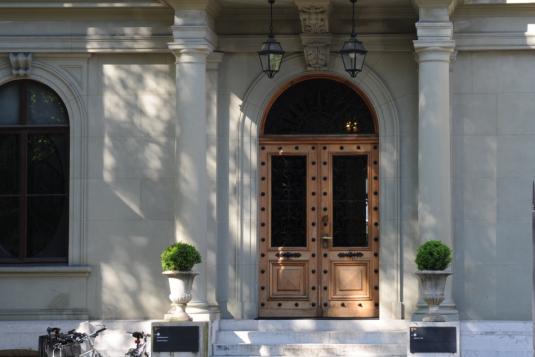
The Tribunal de première instance is competent for all acts of contentious or non-contentious civil jurisdiction that the law does not assign to another judicial or administrative authority.
It rules on claims in civil and commercial matters between natural or legal persons (individuals, companies, etc.).
Commission de conciliation en matière de baux et loyers
The Commission de conciliation en matière de baux et loyers intervenes in the context of disputes relating to a lease contract or a non-agricultural usufructuary leases involving real estate property. Its purpose is to enable the parties to reach an agreement before the case is brought before the Tribunal des baux et loyers if the conciliation attempt fails.

Tribunal des baux et loyers

The Tribunal des baux et loyers is a specialized court that intervenes in disputes concerning lease contracts or non-agricultural usufructuary leases involving real estate property.
Questions/answers
Hearings
Hearings are open to the public, except in the following cases:
- Family law matters (divorce, marital protection, support, parental rights, paternity, etc.)
- Conciliation hearings
- When the court has ordered the hearing to be held in camera because of a particular private or public interest
As a general rule, you are required to appear in person at a hearing, including family law hearings where the court has specifically ordered it and at conciliation hearings.
If you are represented by a lawyer, he/she will advise you whether your presence at the hearing is required.
Note: the presence of minor children who have not been summoned (even babies) is not allowed at the hearing (unless exceptionally agreed by the judge).
Yes, in the following cases:
- At the stage of conciliation
- At any stage of the proceedings, if the hearing is public
The child is not directly summoned to the Tribunal civil.
In cases involving family law (divorce, protective measures for the marital union, parental rights, etc.), the magistrate may, however, decide to hear the child, either personally or by delegation to a third party (generally the Parental separation assessment and support Service (SEASP)), in the absence of the parents.
Rental and lease
They are for sale particularly at the Commission de conciliation en matière de baux et loyers’ desk.
You can do so by means of standard requests available at the Commission de conciliation en matière de baux et loyers' desk and accessible online on the page the commission’s application forms.
You can also use a simple signed letter, containing the designation of the opposing party, the conclusions and the description of the object of the litigation. Pay attention to deadlines (generally 30 days).
Once the lease is terminated, you must file a request for eviction against the tenant/subtenant, in principle with the Commission de conciliation en matière de baux et loyers.
You are not allowed to proceed with the evacuation yourself without a decision from the authority.
You can find all the information on the steps to take with the Financial Services in the thematic guide Rental deposit.
Delivery of deeds
The document must be drawn up by the Tribunal civil, registered by the cantonal tax authorities, and paid in full by you (an payment slip will be sent to you to this effect) before it can be issued to you.
The processing time for a request to obtain a deed varies greatly depending on the type of deed to be issued (a few weeks or months).
Payment Methods
You can write to the financial services of the Judiciary Power, by attaching a copy of the relevant decision to your application.
You must indicate your bank or postal address and attach a copy of your identity card.
Proceeding
Yes, if your case is ongoing. You must send your request in writing to the judge in charge of your case.
If your proceeding is closed, you may request to access your file or obtain copies by filling in the suitable form.
Request
In principle, you must file the application and exhibits in duplicate (one set for the Court and one for your opposing party). If there are several opposing parties, as many copies as necessary must be filed for each of them, in addition to the one for the attention of the Court.
For example, if the dispute is between you and 2 people, you must submit 3 copies (one set for the Court, and one copy for each opposing party), and so on.
If the dispute also involves a minor child or children (divorce, protective measures for the marital union), an additional copy must be provided (for the Parental separation assessment and support Service (SEASP)).
You can withdraw your application by writing to the relevant Court by post (Tribunal de première instance, Tribunal des baux et loyers, Commission de conciliation en matière de baux et loyers) or by depositing a letter of withdrawal at the clerk's office of the Tribunal civil or at the Greffe universel, specifying the procedure number (if known).
Note: a fee may be charged for withdrawal and if your opposing party has already had actions to perform, he/she may object to the withdrawal.
Yes, you will find them on the page Application forms.
Separation and divorce
At the end of the last hearing, the court may ask you to choose between 2 types of decisions:
- A judgment without the grounds: the decision will include only the conclusions, i.e. the solution of the dispute.
- A judgment stating the grounds: the document will present the reasons that led the judge to render his/her decision.
A judgment stating the grounds is more expensive than a decision without grounds.
No, you are not obliged. However, it is highly recommended, especially if you have a disagreement with your spouse and the case is complex.
You can access the list of lawyers and legal advice services in Geneva.
The court decides, depending on the case, whether the children are heard in person.
You can bring a case to the Tribunal de première instance of Geneva if you or/and your spouse are domiciled in Geneva.

